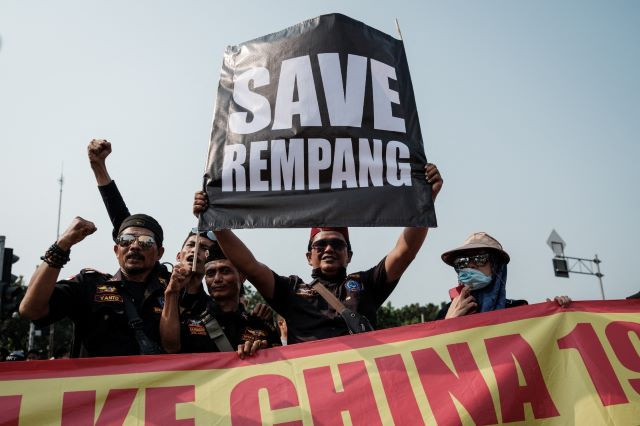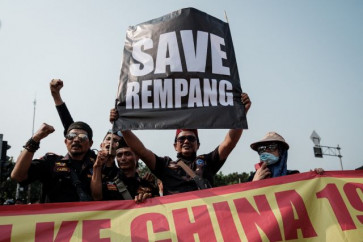Popular Reads
Top Results
Can't find what you're looking for?
View all search resultsPopular Reads
Top Results
Can't find what you're looking for?
View all search resultsThe new president should embrace inclusive and responsible business practices
In many areas, communities seeking justice for the violations allegedly committed by corporations against them have suffered more significant losses, intimidation, criminalization and imprisonment.
Change text size
Gift Premium Articles
to Anyone

Across the world, giant corporations wield significant influence over a country's development. The products produced, jobs created and resources consumed have far-reaching consequences. Similarly, in Indonesia, the role and impact of the business world on the country's development cannot be underestimated. We even witness how the relationship between businesspeople, government and politicians is closely intertwined.
Furthermore, a third of Indonesia's economic players, predominantly large business owners, openly support a particular candidate. This relationship goes beyond fanaticism; it involves interests and has a flavor of patronage.
The patronage relationship between politicians and businesses creates a network of reciprocal dependencies marked by mutual interdependence. This dynamic relationship influences policy formation and affects a governance system lacking the institutional capacity and political will to enforce regulations for the business world. As a result, business practices in Indonesia tend to be reckless, leading to various negative social and environmental impacts.
According to data from the National Commission on Human Rights, there were 1,366 complaints related to alleged human rights violations committed by corporations from 2019 to 2021. These included violations of land ownership rights, welfare rights and the right to life. The businesses or sectors accused of violations included plantations, industry, mineral and coal mining, forestry, oil and gas, fisheries, financial, media, property, tourism, manpower agencies, marketing and trading. This indicates the widespread adverse effects of the business world across sectors throughout Indonesia.
In the garment industry, which is mostly located in Java, human rights exploitation and labor rights violations are prevalent. In Indonesian garment factories, women constitute a significant portion of the workforce, around 60 percent in 2016.
However, the Better Work Indonesia report of 2013 highlighted low compliance with the International Labor Organization (ILO) core conventions and national laws in the garment, textile and footwear industries. The report also emphasized widespread noncompliance with regulations regarding overtime pay, social security benefits and short-term contract employment.

Environmental violations are evident in the plantation sector. According to Global Forest Watch in 2020, Indonesia was among the top 10 countries for primary forest loss. Data from Statistics Indonesia (BPS) on net deforestation in forest and non-forest areas from 2013 to 2019 showed a significant increase in net deforestation from 2014-2015. Although it has slowed down since 2015, the deforestation rate in forest areas in 2018-2019 was still higher than in 2013 (BPS data, Net Deforestation in Forest and Non-Forest Areas in Indonesia 2013-2019).


















